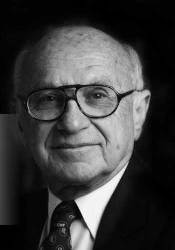29 November, 2006
Xmas concerts!
The Bel Canto Co. will give its annual Xmas concerts on Dec. 1, 2, & 4 at Christ United Methodist church in Greensboro, NC. All programs begin at 7:30 pm. More information is available here.
The Kensington Consort will give its Xmas concert on Dec. 22nd at St. Andrews Episcopal church in Greensboro, NC. This program will begin at 7:00 pm. More information is available here.
If you're in the Greensboro, NC area, please do attend one or both of these concerts. The Bel Canto Xmas concert is an area tradition and is the perfect way to start the holiday season while the Kensington Consort concert will be a refreshing tonic after weeks of frenetic holiday shopping!
28 November, 2006
The King of Woo-Woo
Chopra offers this argument which he apparently considers to "close the case" against materialism:
Think of a yellow flower. Can you see it? Are you sure of the color and the fact that it's a flower and not a fish that you can see? If so, then the experiment has been successful. You have made a major strike at the root of materialism. When you see a flower in your mind, there is no flower inside your brain. That seems simple enough. But where is the flower? There's no picture of it in your cerebrum, because your brain contains no light. How about the color yellow? Is there a patch of yellow inside your brain's gray matter? Obviously not.
Did you miss it? The argument against materialism, that is. Just in case, here are the bare bones of Chopra's reductio (including the hidden premises):
- According to materialism, the nature of consciousness is physical
- Assume materialism is true (arguendo)
- For a materialist consciousness to imagine an existent, there must be a physical representation of that existent in the brain.
- There are no yellow flowers or images of yellow flowers to be found in the brain, neither is any part of the brain "yellow" or "flowery"
- Therefore, people cannot imagine yellow flowers
- But people can and do imagine yellow flowers
- Therefore, materialism is false
Yet you assume--as do all who fall for the superstition of materialism--that flowers and the color yellow exist 'out there' in the world and are photographically reproduced by the brain, acting as a camera made of organic tissue. In fact, existence of flowers shifts mysteriously once it is closely examined. The experience of sight, sound, touch, taste, and smell is created in consciousness. Molecules don't assemble in your head to make the sound of a trumpet blaring in a brass band, for example. The brain is silent. So where does the world of sights and sounds come from?
Materialists cannot offer any reasonable explanation. The fact is that an enormous gap exists between any physical, measurable event and our perception. If I talk to you, all I am doing is vibrating air with my vocal cords. Every aspect of that event can be seen and measured, but turning those vibrating air molecules into meaningful words has never been seen or measured. It can't be.
Well, to begin with, this isn't completely correct. The connection between external stimuli and brain events HAS been seen and measured. Neurophysiologists have located specific regions of the brain that react to particular types of perceptual stimulation (sights, sounds, smells) and used MRI scanning to record images of the brain reacting to those stimuli. They've also been able to map particular regions of the brain that respond to memory recall of those stimuli (so, for example, they can show what parts of the brain respond when a subject is recalling a particular experience).
That aside, there is no doubt that consciousness does represent a "hard problem" in the philosophy of mind. However, it's no more a problem for the materialist than it is for the immaterialist for there are numerous unanswered questions on both sides.
Let's return to Chopra's "anti-materialist" argument for a moment. What can we say about the following reductio:
- According to non-materialism, the nature of consciousness is non-physical
- Assume non-materialism is true (arguendo)
- For a non-materialist consciousness to imagine an existent, there must be a non-physical representation of that existent in the consciousness
- There are no yellow flowers or images of yellow flowers to be found in the consciousness, neither is any part of the consciousness "yellow" or "flowery"
- Therefore, people cannot imagine yellow flowers
- But people can and do imagine yellow flowers
- Therefore non-materialism is false
It seems to me that one of Chopra's mistakes is assuming that we should be able to "see" images or pictures of the objects of consciousness by looking into the "container" of that consciousness. But why would we imagine that to be the case? Why should we expect first-person experiences to be third-person accessible, regardless of paradigm (materialism/non-materialism)? What's likely to be involved is not any actual image but a representation of an image and I see no reason to believe that images cannot have physical representations. Indeed, we have particular experience with such things in the case of digital photographs.
If I take a picture of a yellow flower, I certainly won't see any yellow flowers or pictures of yellow flowers inside my digital camera. The image is represented therein by sequences of 1's and 0's. So we can have a physical representation of a non-physical thing. And this has important implications for Chopra's original argument.
It's not clear exactly what Chopra believes would be the case given a non-material consciousness, but it would seem to be true that some theory of representation is needed (wherein objective existents are represented subjectively). Obviously Chopra believes that materialism cannot sustain such a theory, but on this his reasoning is (characteristically) opaque. However, it does seem clear that at the least, he assumes that the materialist position (all that exists is matter) is necessarily coincident with reductive physicalism (the mind is the brain). But is this true?
To begin with, materialism is not necessarily the position that "all that exists is matter". More broadly, it could be defined as the position that "all that exists is either matter or dependent upon matter for its existence." No sensible materialist would deny the existence of abstract concepts (universals), they would likely only fail to affirm their objective (external to the mind) existence. So it is necessary in our definition to accomodate this reality.
But this distinction vitiates Chopra's argument. If it is the case that the mind is non-physical, but is dependent upon the physical for its existence, then we have our materialist answer: the image of the yellow flower is "encoded" in the physical structure of the brain where it can be accessed by the consciousness and consciousness is an emergent property of the physical brain. Chopra's argument may retain force against reductive physicalists (I say "may" only because of the logical possibility; there are very likely physicalist schema that may undercut it as well c.f. Daniel Dennet).
So much for Chopra's "argument" against materialism. But what about the possibility that the mind is a non-material substance, and not dependent upon matter for its existence (as Chopra apparently believes). Does this view avoid these or other types of problems entirely? I don't think so. Where does a non-material consciousness "live"? How does it interact with the brain? Where is the evidence for its existence? Of what is it composed? How does it come into being? &c. Materialist schema can provide answers for many of these questions and for the ones where it cannot, there are usually no good answers on the non-materialist side as well.
And this is what I see as a primary difficulty with this, and actually all such (in my experience) simplistic arguments against materialist philosophies of mind. Proponents attack what they see as motes in the materialist's eye while missing the planks in their own. There are simply too many gaps in our knowledge of the brain, the mind, and the structure of existence in general to provide any definitive answers. Right now, the majority of evidence from biology, neurophysiology, & psychology appears to be on the materialist side so there is simply no reason to assume that there's any magic required. That's not to say that there are no good critiques of the materialist position in the philosophy of mind. David Chalmers and William Hasker have provided some very on-point and stimulating criticisms of the materialist and reductive physicalist positions. But Chopra and those like him who believe that blathering about flowers and pictures inside the brain represents any serious threat to materialist schema are...well...just blathering.
23 November, 2006
Jack Chick meets Stan Lee
While the comics can be quite (unintentionally) humorous (albeit in a rather sad, sick sort of way), there are numerous parodies available on the web that are intentionally funny and some quite so indeed. You can find some good ones here, and now a new one combining the Marvel universe created by Stan Lee and Chick's inimitable style. Enjoy!
17 November, 2006
Milton Friedman, 1912-2006
 Milton Friedman, Nobel Prize-winning Economist and free-market champion, died yesterday evening at age 94.
Milton Friedman, Nobel Prize-winning Economist and free-market champion, died yesterday evening at age 94.One of the great intellectuals of the twentieth century, his contributions to economics and the cause of liberty cannot be overestimated and will long be remembered. I can still remember reading Capitalism and Freedom just after college and being struck with how approachable the work was (for an economics neophyte). Friedman excelled at explaining complex ideas in relatively simple language.
His career will doubtless be celebrated at length on various economics, libertarian, and political blogs. I'll update this post with links as I locate them.
Obituaries: Financial Times, Reuters, New York Times (may require login)
Blogs: Reason magazine, Positive Liberty, Cato-at-Liberty (1,2,3,4), The Volokh Conspiracy, Andrew Sullivan, The Agitator, Jim Lippard
Other: Cato Institute, Mises Institute, Atlas Society
08 November, 2006
This just in!!
I guess this means Darwin really kicked his ass!
We now return you to your regularly scheduled program...
07 November, 2006
The battle of the millenia!
Darwin Vs. God by =Endling on deviantART
Not a real event, of course, but rather cool art nonetheless!
HT: Pharyngula





